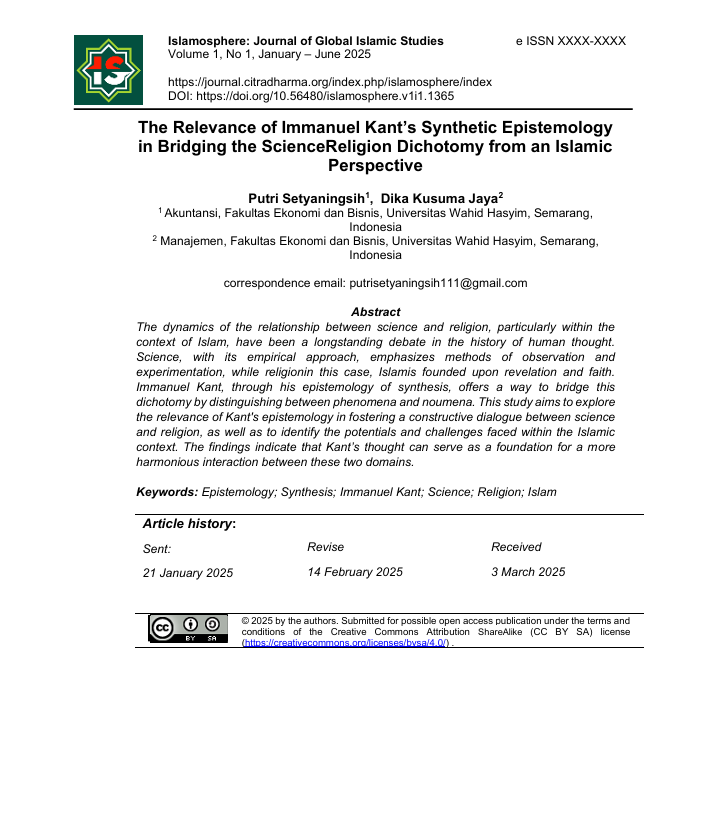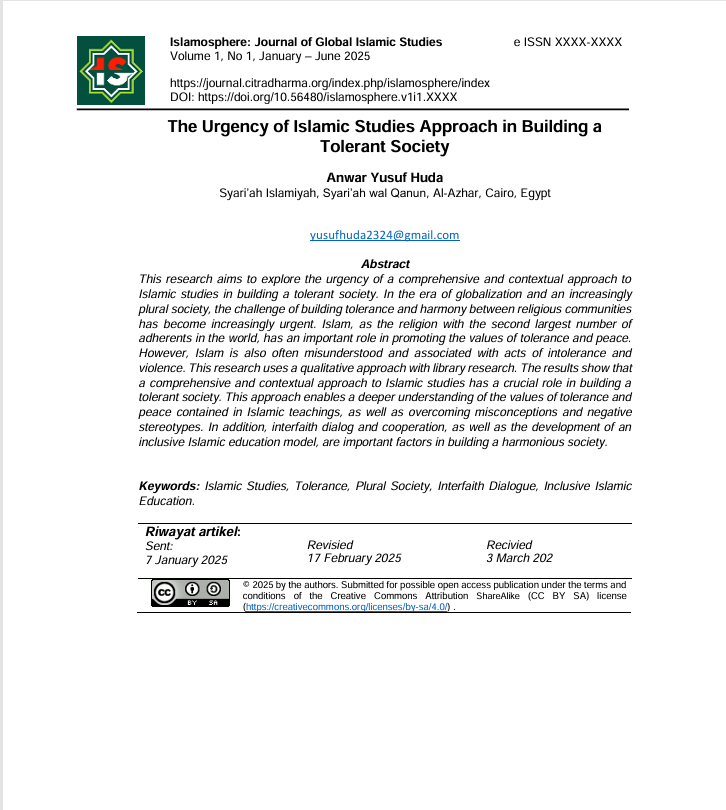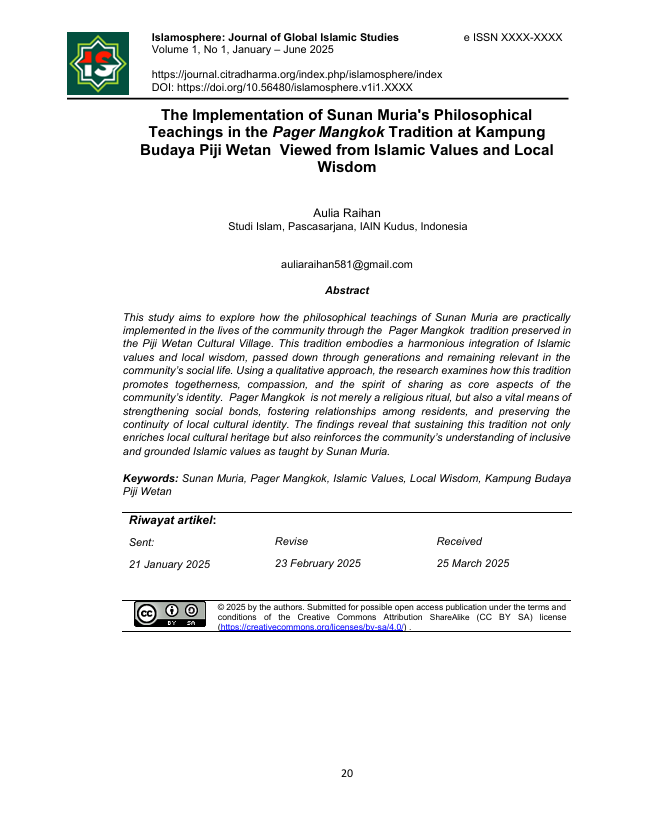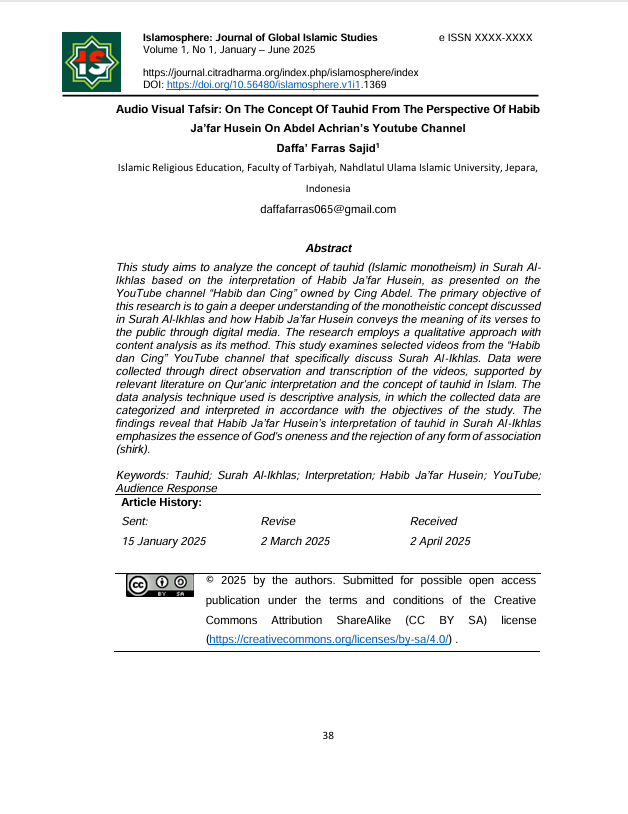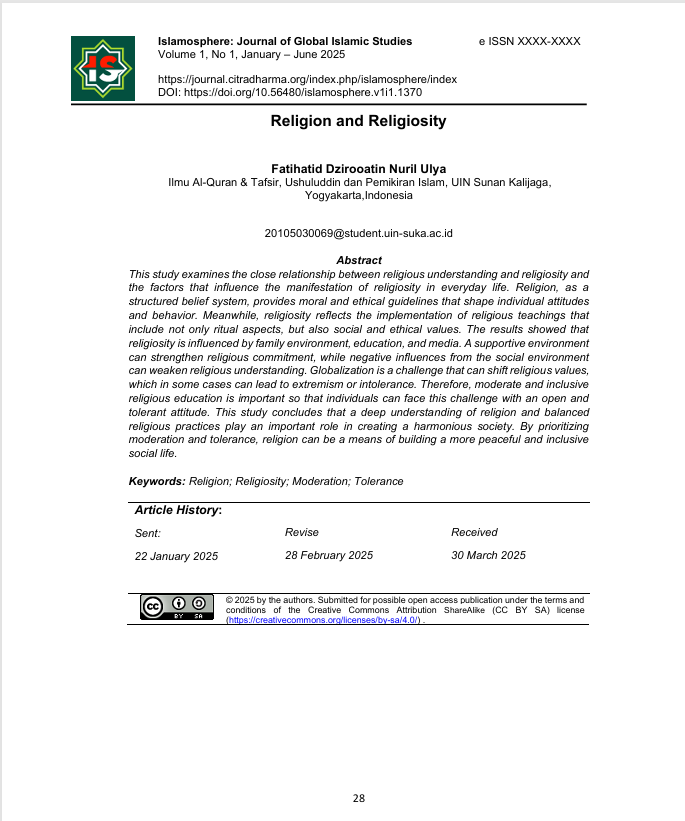About the Journal
Islamosphere: Journal of Global Islamic Studies
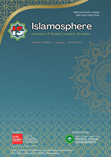
| Title | Islamosphere: Journal of Global Islamic Studies |
| Abbreviation | Islamosphere J. Glob. Islam. Stud. |
| Initials | islamosphere |
| Scope | See Scope |
| Business Model | Open Access & Author Pay |
| Frequency | 2 issues per year |
| Type of Review | Double Blind Review |
| DOI | prefix https://doi.org/10.56480/islamosphere |
| ISSN | XXXX-XXXX |
| Editors | Editors |
| License | CC-BY-SA |
| Publisher | Yayasan Citra Dharma Cindekia |
| Citation Analysis | Scopus | Dimensions | Google Scholar | Web of Science | Sinta |
| Metrics | Authors Diversity | Visitors Statistics |
| Digital Marketing | Youtube Channel | X | Instagram | Direct Email |
| Sponsorships | See Sponsor |
DOI: https://doi.org/10.56480/islamosphere
Islamosphere: Journal of Global Islamic Studies is an international, peer-reviewed academic journal dedicated to exploring the diverse and dynamic manifestations of Islam in a globalized world. The journal provides a platform for interdisciplinary research that examines the religious, cultural, political, and social dimensions of Muslim communities across different geographical and historical contexts. By fostering scholarly dialogue, Islamosphere aims to bridge the gap between traditional Islamic scholarship and contemporary global issues, offering fresh perspectives on the evolving role of Islam in the modern era.
Focus
The journal focuses on:
-
Transnational Islam: The spread and adaptation of Islamic beliefs, practices, and movements beyond traditional Muslim-majority regions.
-
Muslim Diasporas: The experiences, identities, and contributions of Muslim minorities in non-Muslim societies.
-
Global Islamic Thought: Intellectual and theological developments within Islam as they interact with global discourses.
-
Islam and Modernity: The challenges and opportunities faced by Muslim communities in adapting to technological, political, and cultural changes.
-
Comparative Studies: Interactions between Islam and other religious, philosophical, and ideological systems.
Scope
Islamosphere welcomes original research articles, critical reviews, and case studies covering (but not limited to) the following themes:
-
Religious and Theological Studies
-
Contemporary interpretations of Islamic theology (‘aqīdah).
-
Sufism and spirituality in a global context.
-
Reformist and revivalist movements in Islam.
-
-
Sociocultural and Political Dynamics
-
Islam and multiculturalism.
-
Muslim responses to globalization, secularism, and postcolonialism.
-
The role of Islam in international relations and geopolitics.
-
-
Media, Technology, and Digital Islam
-
The influence of social media on Islamic discourse.
-
Online fatwas, digital da‘wah, and virtual Muslim communities.
-
AI, ethics, and Islamic jurisprudence in the digital age.
-
-
Muslim Minorities and Identity Politics
-
Challenges of integration and Islamophobia in the West.
-
Indigenous Muslim cultures (e.g., Islam in Latin America, Europe, or East Asia).
-
Gender and intersectional issues in Muslim societies.
-
-
Historical and Civilizational Studies
-
Islam’s historical exchanges with other civilizations.
-
The legacy of Islamic empires and their modern-day implications.
-
Islamic contributions to science, philosophy, and arts in a global framework.
-
Target Audience
-
Academics and researchers in Islamic, Middle Eastern, and global studies.
-
Policymakers and NGOs working with Muslim communities.
-
Graduate students in religious studies, anthropology, sociology, and political science.
Publication Details
-
Frequency: Biannual (2 issues per year).
-
Languages Accepted: English (primary), with abstracts in Arabic and French.
-
Peer-Review Process: Double-blind peer review.
-
Indexing Targets: Scopus, EBSCO, DOAJ, and Google Scholar.
Current Issue
Islamosphere: Journal of Global Islamic Studies , Vol 1 No 1, January-June 2025

